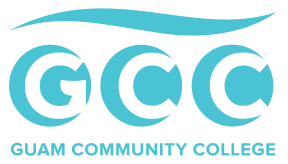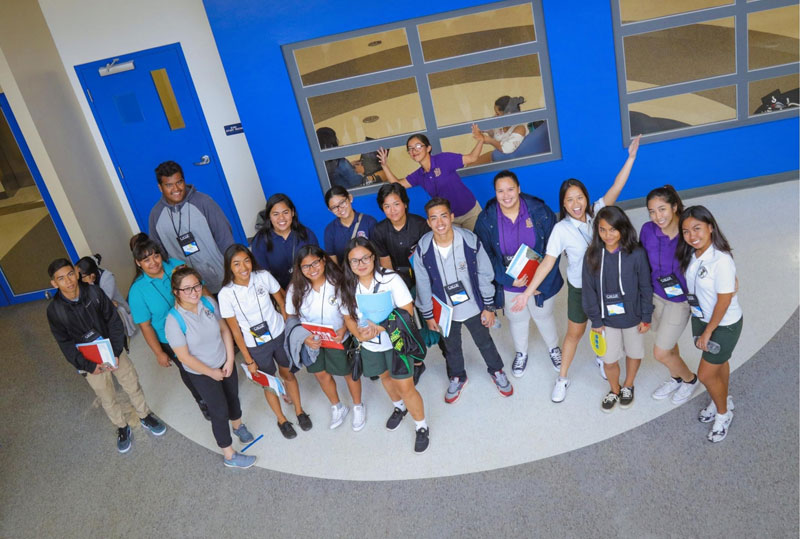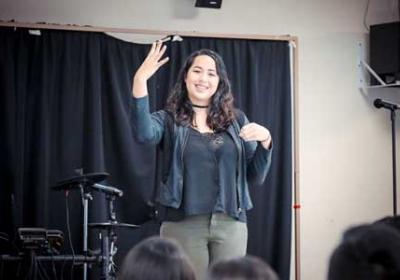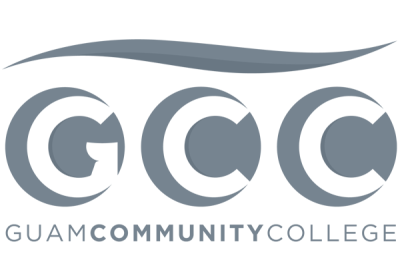Associate of Science in Emergency Management
- You are on...
Main Page for Emergency Management A.S.
Associate of Science in Emergency Management
Total Credit Hours: 60-62
Emergency Management graduates will be able to apply basic emergency management skills in the event of natural and manmade disasters. Graduates will be able to implement the four major areas of emergency, namely, mitigation, preparation, response, and recovery. The Emergency Management program utilizes the Emergency Management Institute’s Independent Study (IS) courses to prepare graduates to apply leadership skills, to communicate effectively, to solve problems, to plan, to work as a team, to operate within the legal system and governmental framework for emergency management, to analyze risks and hazards, and to manage resources efficiently.
The Emergency Management program’s major requirements are adopted and derived from EMI’s Independent Study program. GCC’s Emergency Management program will adhere to the latest IS offerings to ensure that students learn what is relevant and most up-to-date information and skills.
Approved college credits must be an approved EMI course and subject to the approval by the academic advisor or department chair. As such, Certificate and/or Associate degree students in EM must obtain prior approval by EM academic or department chair.
Program Student Learning Outcomes (SLOs):
Upon successful completion of the AS in Emergency Management program, students will be able to:
- Coordinate functions between local and federal law enforcement in response to disaster events.
- Analyze the functions of the Emergency Operations Center and National Incident Management System.
- Evaluate hazards and risks of emergency situations.
- Apply critical thinking skills during table top exercises.
General Education Requirements | ||
Course | Course Name | Credits |
English (Choose 1) | ||
| EN110 OR EN110A | Freshman Composition OR Freshman Composition with Instructional Lab | 3-4 |
| MA____ | Mathematics Requirement | 3 |
| Literacy for Life Requirement | 3 | |
| Humanities & Fine Arts Requirement | 3-4 | |
| Social & Behavioral Sciences Requirement | 3 | |
| Natural & Physical Sciences Requirement | 4 | |
Total | 19-21 | |
Major Requirements | ||
Course | Course Name | Credits |
| EMI approved courses | 29 | |
| CJ102 | First Responder | 3 |
| CJ104 | Dynamics of Substance Abuse | 3 |
| CJ206 | Social Values & the Criminal Justice Process | 3 |
| CJ292 | Criminal Justice Practicum | 3 |
Total | 41 | |
Program Total | 60-62 | |
Course Sequence by Semester
Year 1 | |||||
Semester 1 | Semester 2 | ||||
Course # | Course Name | Credits | Course # | Course Name | Credits |
EN110 OR EN110A | English Composition Requirement OR Freshman Composition with Instructional Lab | 3-4 | Humanities & Fine Arts Requirement | 3-4 | |
MA____ | Mathematics Requirement | 3 | Social Science Requirement | 3 | |
CJ102 | First Responder | 3 | CJ104 | Dynamics of Substance Abuse | 3 |
Total | 9-10 |
| Total | 9-10 | |
Year 2 | |||||
Semester 3 | Semester 4 | ||||
Course # | Course Name | Credits | Course # | Course Name | Credits |
| Natural & Physical Science Requirement | 4 | CJ292 | Criminal Justice Practicum | 3 | |
| Literacy for Life | 3 | EMI approved courses | 29 | ||
CJ206 | Social Values & the Criminal Justice Process | 3 |
| ||
Total | 10 | Total | 32 | ||
PROGRAM TOTAL | 60-62 | ||||
| General Education Requirements | ||
| Course | Course Name | Credits |
| EN___ | English Requirement | 3-4 |
| MA110A | Finite Mathematics | 3 |
| Literacy for Life Requirement | 3 | |
| Humanities & Fine Arts Requirement | 3-4 | |
| SI___ | Natural & Physical Sciences | 4 |
| PY120 | General Psychology | 3 |
| Major Requirements | ||
| Course | Course Name | Credits |
| CJ102 | First Responder | 3 |
| CJ104 | Dynamics Of Substance Abuse | 3 |
| CJ206 | Social Values & The Criminal Justice Process | 3 |
| CJ292 | Criminal Justice Practicum | 3 |
| EMI IS | Courses must be approved by advisor prior to completing online. Each course is equivalent to one (1) semester credit | 29 |
| Program Total | 60-61 | |
2024-2025 College Catalog
Recognizing the necessity for students to succeed in the complex and rapidly changing workplace, Guam Community College offers a general education curriculum that introduces students to major areas of knowledge and methods of inquiry. All degree programs require an interdisciplinary general education component that promotes the development of intellectual skills that enable students to become effective learners and informed citizens. Critical thinking, the use of language and computation, appropriate social skills, global awareness and respect for diverse opinions are among the learning outcomes provided in the general education requirements of each program.
Guam Community College believes that general education provides the academic foundation necessary for students to achieve their life goals. General education is intended to offer students a breadth of quality student learning experiences, encourage their respect for cultural heritage, promote their ethical and responsible social behavior and facilitate their life-long learning.
The General Education program strives to foster student learning and skill development in civic engagement, critical thinking, understanding of the relationship between the individual and society, information literacy, oral communication, quantitative reasoning, and written communication.
Guam Community College believes that high quality general education opportunities for all citizens are necessary for democratic principles and practices to exist and for a sound economy to flourish. The College continually scrutinizes the general education curriculum in order to assure that all degrees and certificates granted by the College support this vision of general education and that it serves as a means to inspire hope, opportunity and responsibility in all its constituencies.
Requirements for General Education follow the options described below. Students declared prior to fall 2010 will follow the requirements indicated in the applicable catalog in which they first declared their major program at the College.
Notes on General Education requirements
Students are advised to check the requirements for their specific programs before taking General Education courses.
Courses chosen to meet the general education requirements may not be used to meet the Major Requirements of a student’s specific degree program.
The list contains courses with pre-requisites, so students should make their choices carefully and thoughtfully. Students may consult a counselor or an academic advisor for guidance in choosing any of the course options listed.
IMPORTANT NOTE: Some programs require different levels of coursework to meet General Education requirements, please review the individual programs for more information.
| GENERAL EDUCATION | ||
| Scope 1: Skills for and Application of Lifelong Learning | ||
| Freshman Composition (Choose one course from the following to meet the required 3-4 credits) | ||
| Course # | Course Name | Credits |
| EN 110 | Freshman Composition | 3 |
| EN110A | Freshman Composition with Instructional Lab | 4 |
| EN 111 | Writing for Research | 3 |
| Mathematics (Choose one course from the following to meet the required 3-4 credits)* | ||
| Course # | Course Name | Credits |
| MA 110A | Finite Mathematics | 3 |
| MA 115 | Fundamentals of College Algebra | 3 |
| MA 161A | College Algebra & Trigonometry I | 3 |
| *Any college level math will be considered for the completion of this category | ||
| Literacy for Life Skills (Choose one course from the following to meet the required 3 credits) | ||
| Course # | Course Name | Credits |
| CO 110 | Critical Thinking for Civic Engagement | 3 |
| CS 151 | Windows Applications | |
| CS 152 | Macintosh Applications | |
| Scope 2: Broad Comprehension of the Development of Knowledge, Practice and Interpretation | ||
| Humanities & Fine Arts (Choose one course from the following to meet the required 3-4 credits)* | ||
| Course # | Course Name | Credits |
| ASL 100 | American Sign Language I | 4 |
| CH 110 | Chamorro I | 4 |
| ED 265 | Culture & Education in Guam | 3 |
| CO 125 | Introduction to Human Communication and Speech | 3 |
| EN 210 | Introduction to Literature | 3 |
| HI 121 | World Civilization (Pre-historic Time to 1500) | 3 |
| HI 122 | World Civilization (1500 to Present Time) | 3 |
| HI 176 | Guam History | 3 |
| HM 110 | Introduction to Community Services | 3 |
| HM 201 | Social Welfare & Development: Global Challenges | 3 |
| HU 120 | Pacific Cultures | 3 |
| HU 220 | Guam Cultures & Legends | 3 |
| JA 110 | Japanese I | 4 |
| KE 110 | Korean I | 4 |
| PI 101 | Introduction to Philosophy | 3 |
| TH 101 | Introduction to the Theater | 3 |
| VC 101 | Introduction to Visual Communications | 3 |
| *Any foreign language, humanities, or fine arts course will be considered for the completion of this category | ||
| Natural & Physical Sciences (Choose one course and the corresponding lab from the following to meet the required 4 credits)** | ||
| Course # | Course Name | Credits |
| SI 101/101L | Introduction to Chemistry (3) & Introduction to Chemistry Laboratory (1) | 4 |
| SI 103/103L | Introduction to Marine Biology: Theory (3) & Introduction to Marine Biology Laboratory (1) | |
| SI 105/105L | Introduction to Physical Geology (3) & Introduction to Physical Geology Laboratory (1) | |
| SI 110/110L | Environmental Biology: Theory (3) & Environmental Biology Laboratory (1) | |
| SI 141 | Applied Physics I | |
| SI 150/150L | Introduction to Microbiology: Theory (3) & Introduction to Microbiology Laboratory (1) | |
| SI131/131L | Human Anatomy & Physiology I: Theory (3) & Human Anatomy & Physiology I Laboratory (1) | |
| SI132/132L | Human Anatomy & Physiology II: Theory (3) & Human Anatomy & Physiology II Laboratory (1) | |
| **The exception to this would be SI141 which does not include a laboratory requirement | ||
| Scope 3: Preparation for and Acceptance of Responsible Participation in Civil Society | ||
| Social & Behavioral Sciences (Choose one course from the following to meet the required 3 credits) | ||
| Course # | Course Name | Credits |
| EC 110 | Principles of Economics | 3 |
| PS140 | American Government | 3 |
| PY 100 | Personal Adjustment | 3 |
| PY 120 | General Psychology | 3 |
| PY 125 | Interpersonal Relations | 3 |
| SO 130 | Introduction to Sociology | 3 |
| CJ 100 | Introduction to Criminal Justice | 3 |
| WG 101 | Introduction to Women and Gender Studies | 3 |
| *Any social and behavioral science course will be considered for the completion of this category | ||
| Minimum General Education Requirements | 19 | |
2024-2025 College Catalog
Upon successful completion of the AS in Emergency Management program, students will be able to:
- Coodinator functions between local and federal law enforcement in response to disaster events.
- Analyze the functions of the Emergency Operations Center and National Incident Management System.
- Evaluate hazards and risks of emergency situations.
- Apply critical thinking skills during table top exercises..






